Next Conferencing
Ten reasons why Aarhus Public Library's Next Library is a standard bearer in innovation conferences.
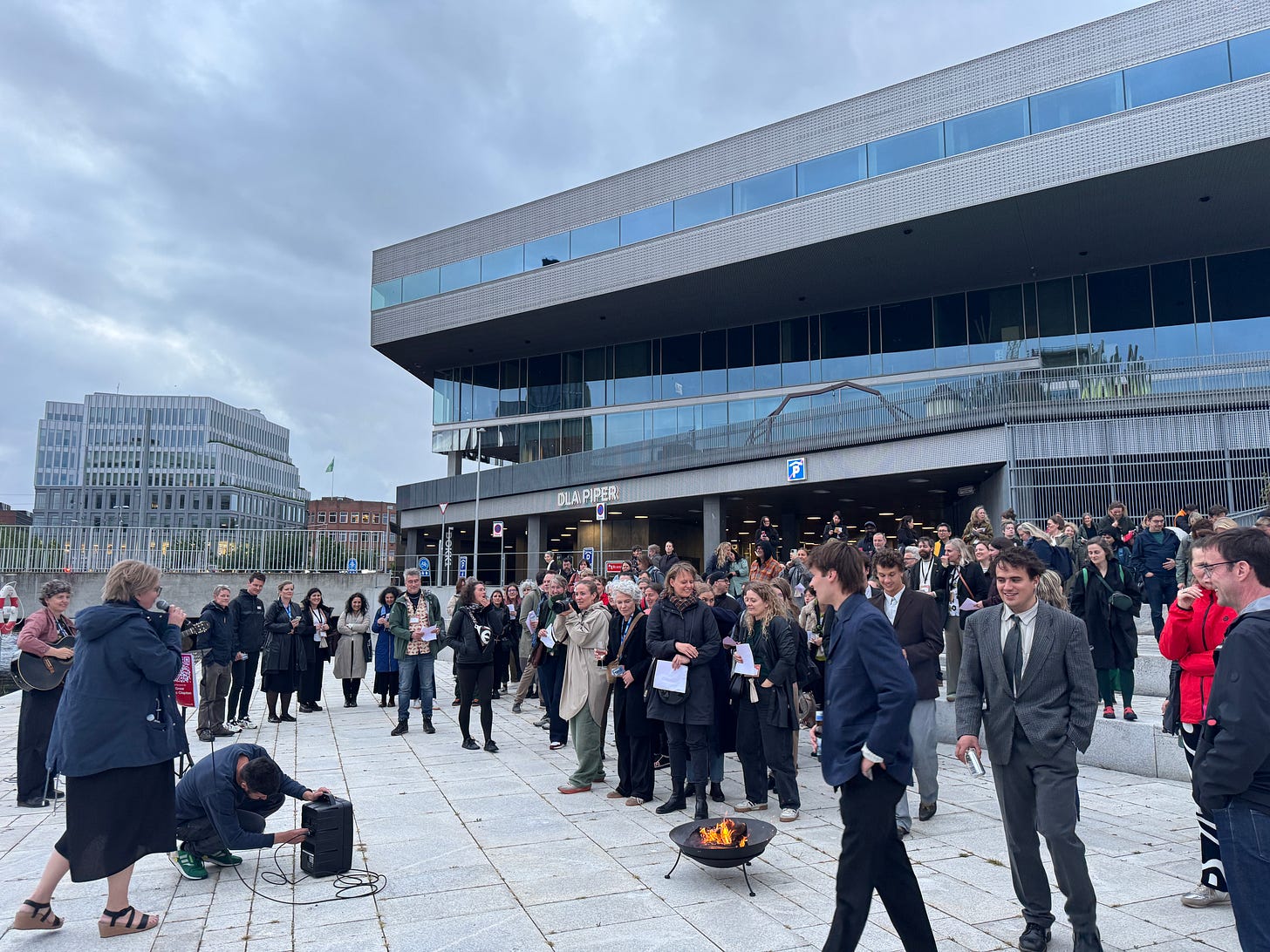
I am writing this at the cafe of Aarhus’ main library Dokk1 on Wednesday afternoon. Next to me, a hipster dad is getting fifty percent of the food into the mouth of the toddler who seems more interested in eye contact with me. Behind me, two students are huddled around a laptop. They both look like they woke up an hour ago. My Danish is good enough to understand that they are discussing James Joyce’s Odyssey. An older gentleman is reading a newspaper. Library staff just got out a ladder to hang a banner for the LiteratureXchange festival highlighting the visit of Nobel laureate Abdulrazak Gurnah.
Over the last days, I took part in the most hyped-up library event in the world, Next Library. I had the honor to speak about work I do in a far more personal manner than ever. My voice broke sharing how growing up gay has impacted the way I think about justice and institutions. In the afternoon, I had some time off and go to the ARoS art museum to be with my own thoughts.
I had high expectations. Dokk1 is one of the most praised public libraries in the world. Many of the people I work with have said that this is the event that has had the most profound impact on how they think about libraries.
I go to a lot of professional conferences, as a speaker and as a participant. It is not an exaggeration to say that this is the best conference I have attended in terms of participant experience. Here are ten reasons why.
1. Trust in Participants
It’s relaxed. There is no registration to workshops and breakouts. As Director Marie Østergaard said:”If the one you wanted to go to is full, you should go somewhere else.” This arrangement creates opportunities for exploration, tackles some of the frustrating parts of no-show in many conferences and takes away a lot of the pre-conference stress.
2. At The Library
Rather than isolating participants into a conference center or a hotel, Next Library is organized in the library space while the library is open. Participants are encouraged to eat and drink and sit everywhere in the library. There are no checks for badges to enter sessions. Aarhus residents can and do walk into sessions.
3. By The Library Staff
The conference is organized by the library’s staff. This allows staff members to collaborate across the organization, try out leadership roles, build new skills and explore their passions. As a result, the program is grounded in the reality of libraries and you can sense the collective pride and sense of responsibility.
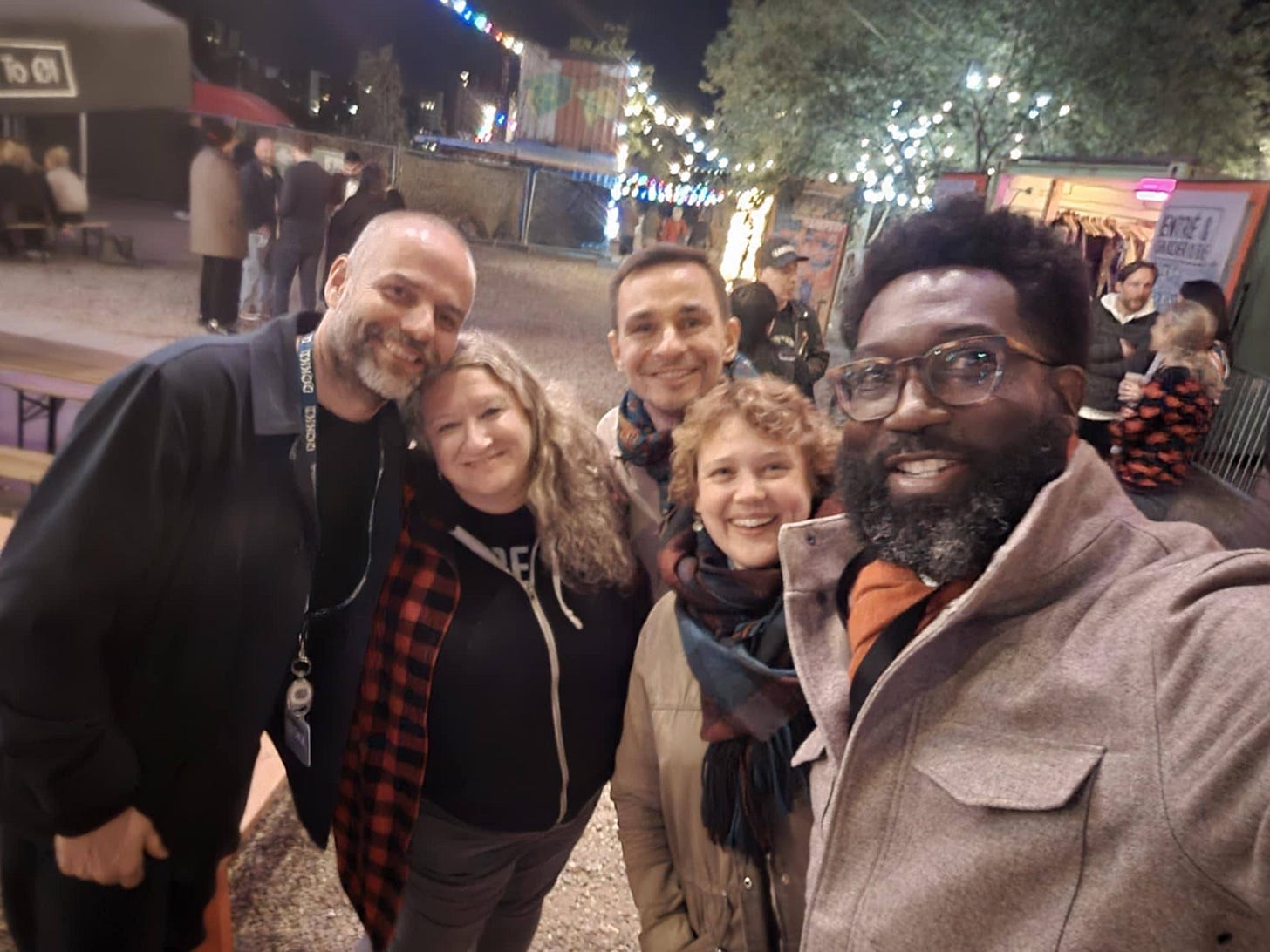
4. Visible in the Library
The library’s communication team is constantly showcasing content from the conference on the screens in the library. This simple act of highlighting content and participants removes some of the traditional exclusive practices in conferencing.
5. Kindness and Humility
Aarhus is an incredible city. Denmark is one of the happiest countries in the world. Aarhus Libraries is one of the most progressive systems in the world. Having said that, there was very little self promotion by Aarhus. We as participants were able to experience things ourselves rather than feeling like someone propagates “city branding” to us. Everyone in the Aarhus team was attentive, open and welcoming. There was none of the disguised ego tripping that I often witness in innovation settings. They trusted that their city and their library speak for themselves.
6. Sensible Sustainability
Yes, Marie spent a sizable time of her opening words talking about recyclable cups. But it made sense. We were invited to use the city’s deposit-based cup recycling system. We were given very little to none promotional crap. Food was vegetarian and served from recyclable cardboard dishes. We walked 30 minutes across the city to the party. All these decisions made sense, were easy for the participants and were done without compromising a sense of abundance.
A common phrase in the sustainability narrative is “practice what you preach”. Aarhus went further. Theirs seems to be: practice, not preach.
7. Capped Participation
This event sells out quick. They have intentionally decided to cap participation to 350 participants while they could invite at least double that. “We have done that so you can feel like you are in a bubble”, Marie said. Love that.
8. Intimate City
Aarhus is a city of around 400,000 people with incredible public and cultural spaces and. All the participants makes an effort to be there. All programming is within walking distance. There is a sense of thereness.
9. Critical Curiosity
There would be a lot of reason for doom and gloom right now. Next Library avoids that without being naive. Joy is a thread throughout the event, without compromising critical thinking. Their theory of change seems to be shedding light on what works or is inspirational while remaining grounded in the real world. Their speakers were surprising, world-class and not a who’s who of the library world.
10. Experience
The conference was a multi-sensory experience. We listened to music and sang together, burnt things by a fire, grounded ourselves into the day by smelling clay, talked about democracy, built books, got soaked in the rain, walked, animated, sowed patches, ate and drank.
I leave Aarhus inspired, tired and grateful. There is a lot to learn here on how to create professional experiences. I got my hands dirty, made new friends, drank beer and know that there is a global movement committed to the civic commons.





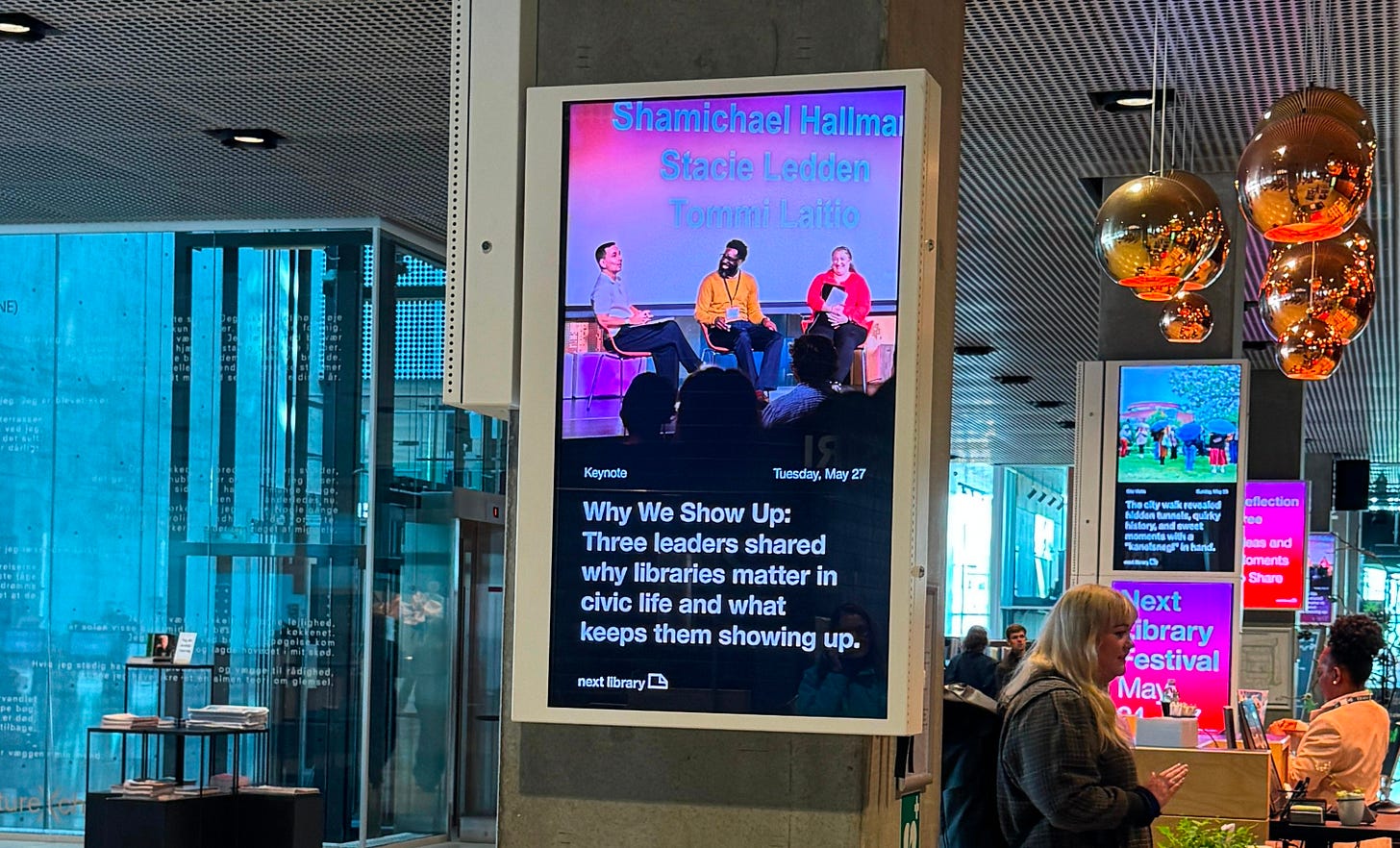
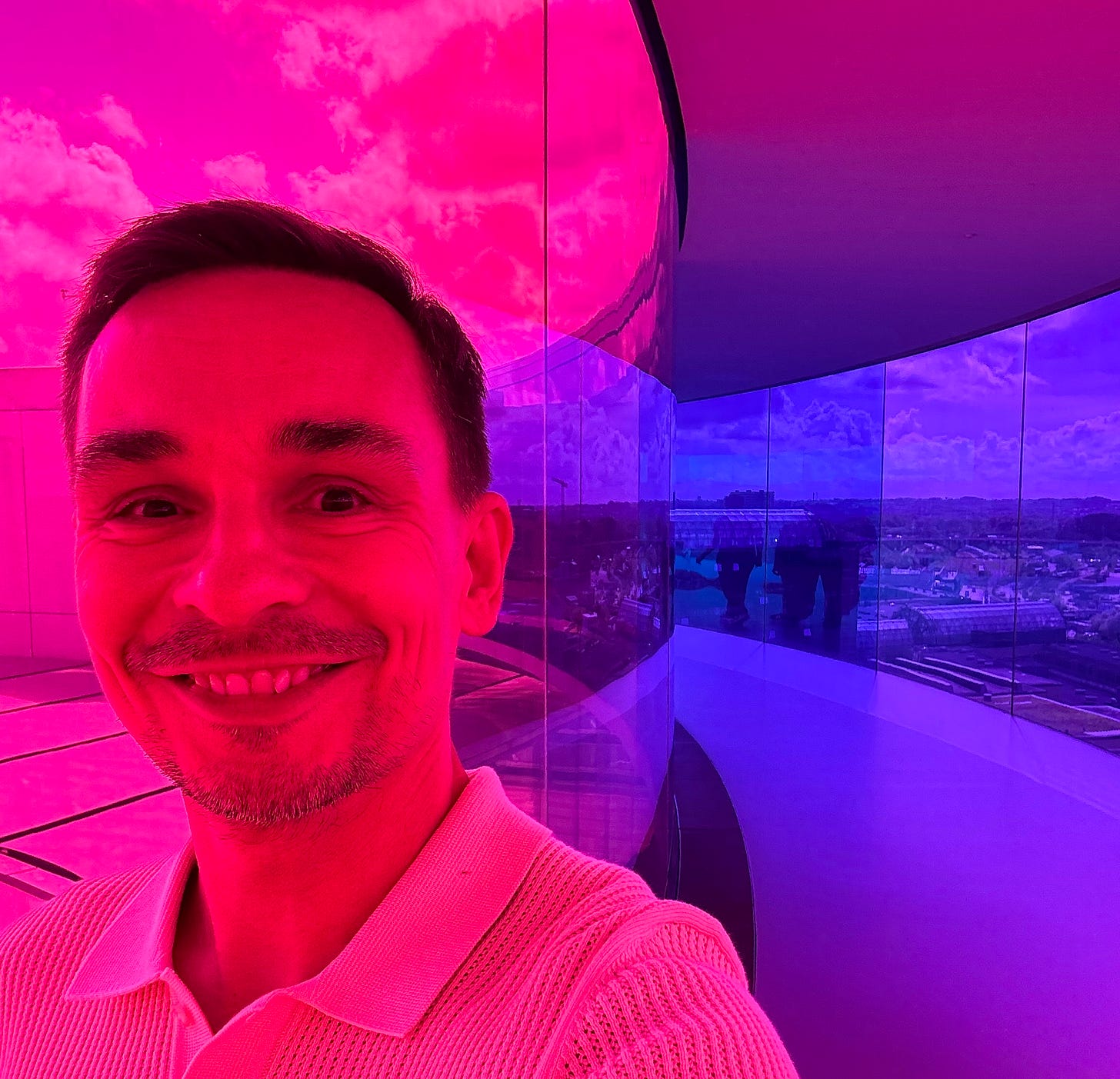
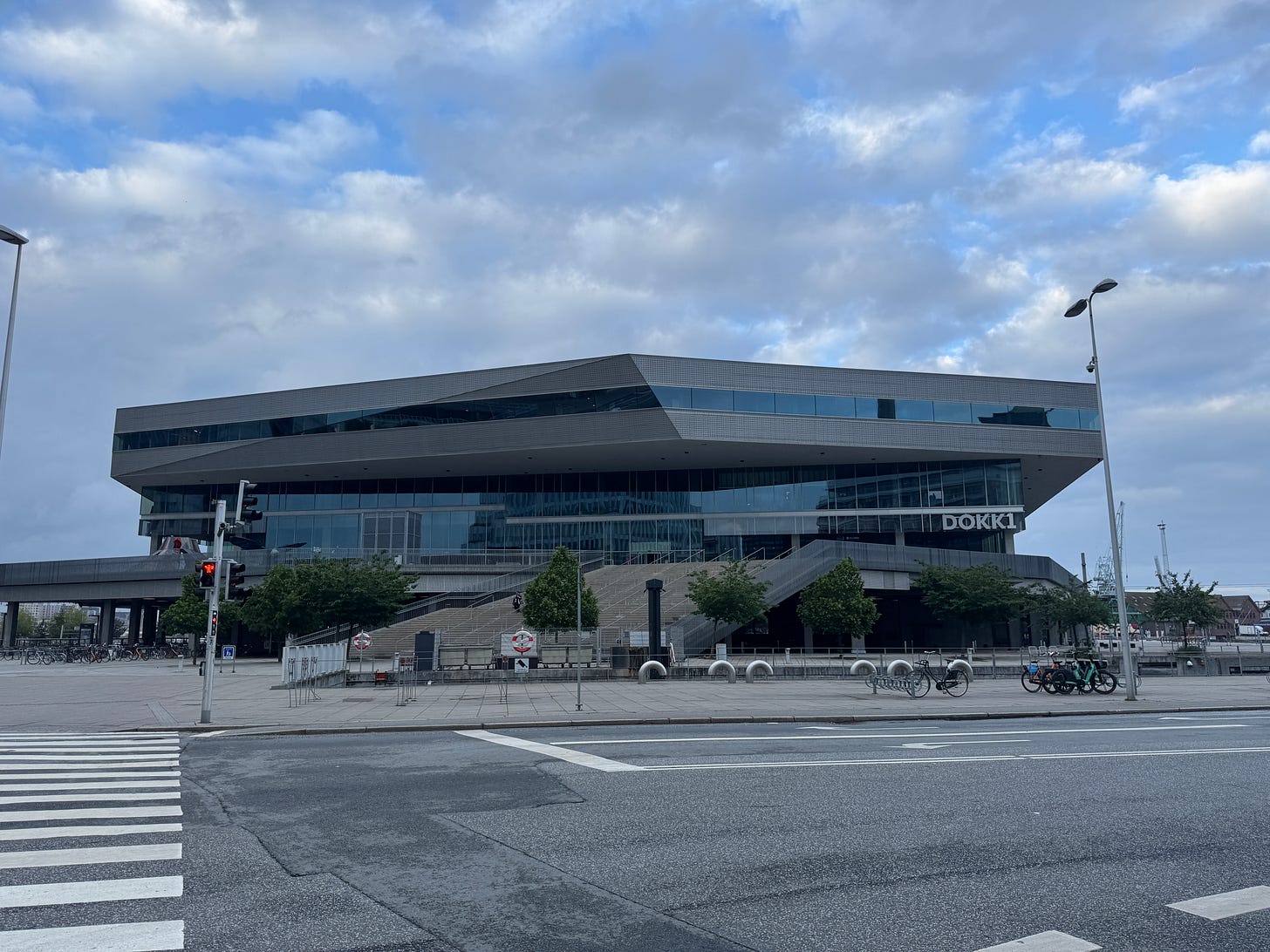
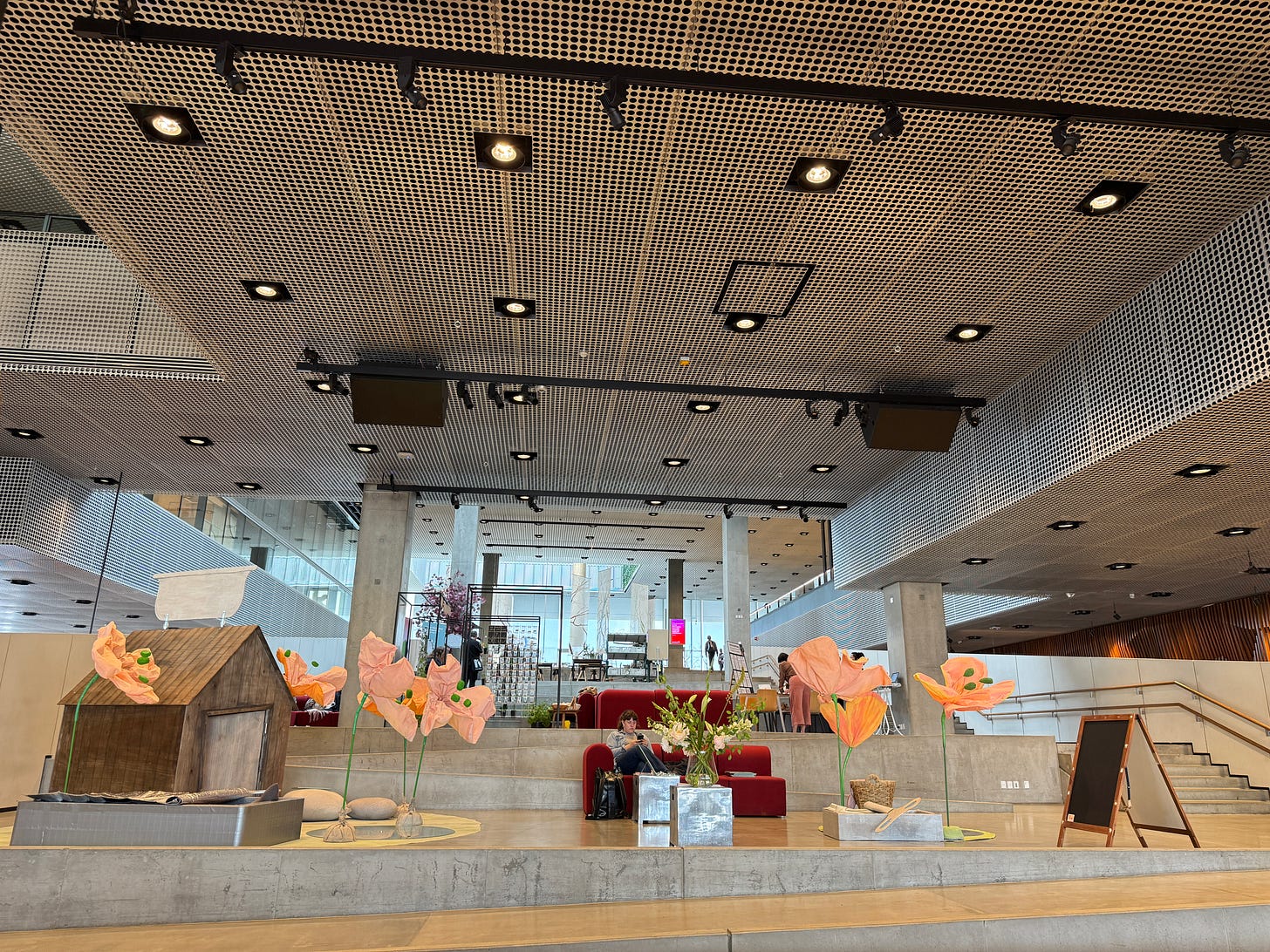
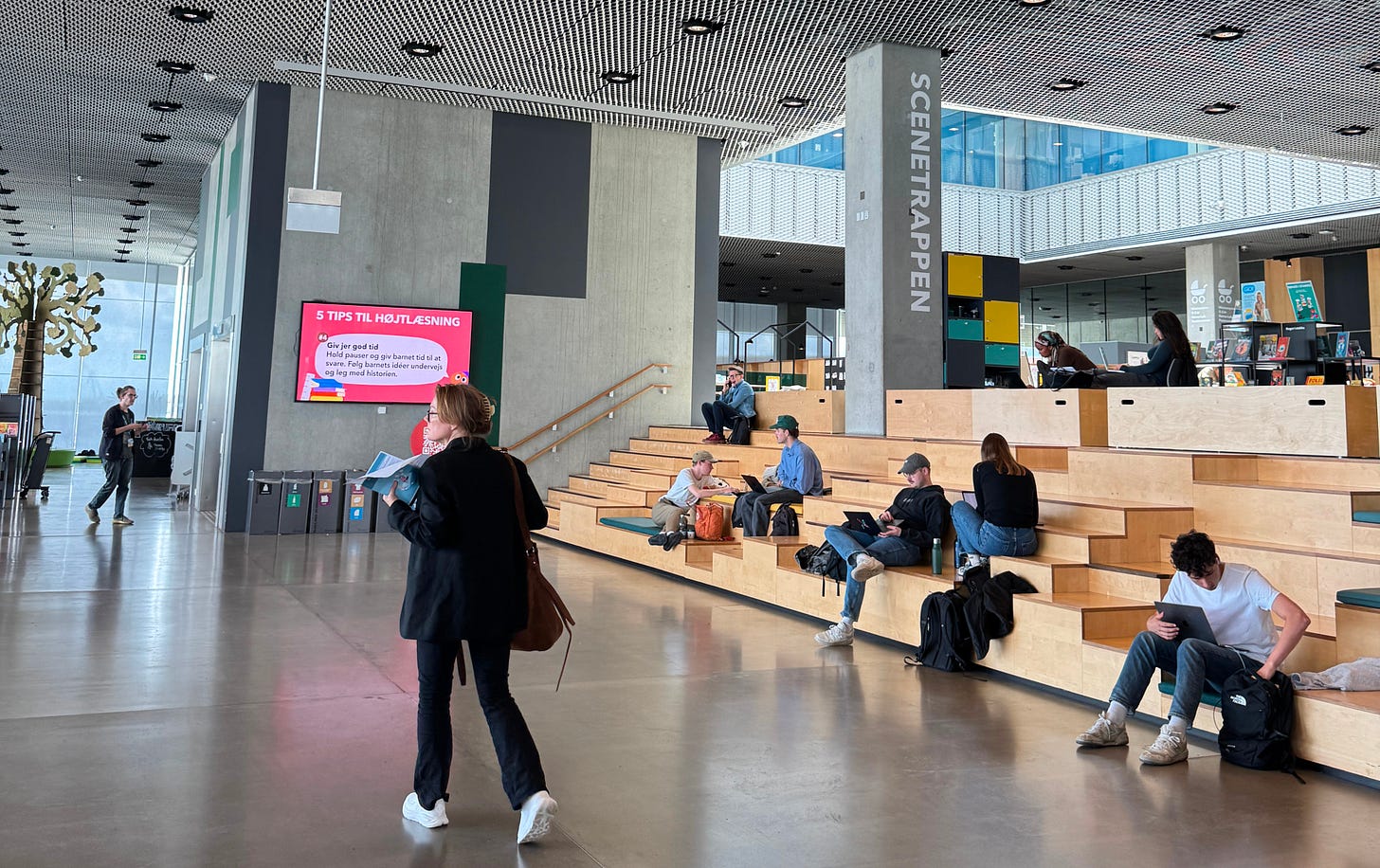
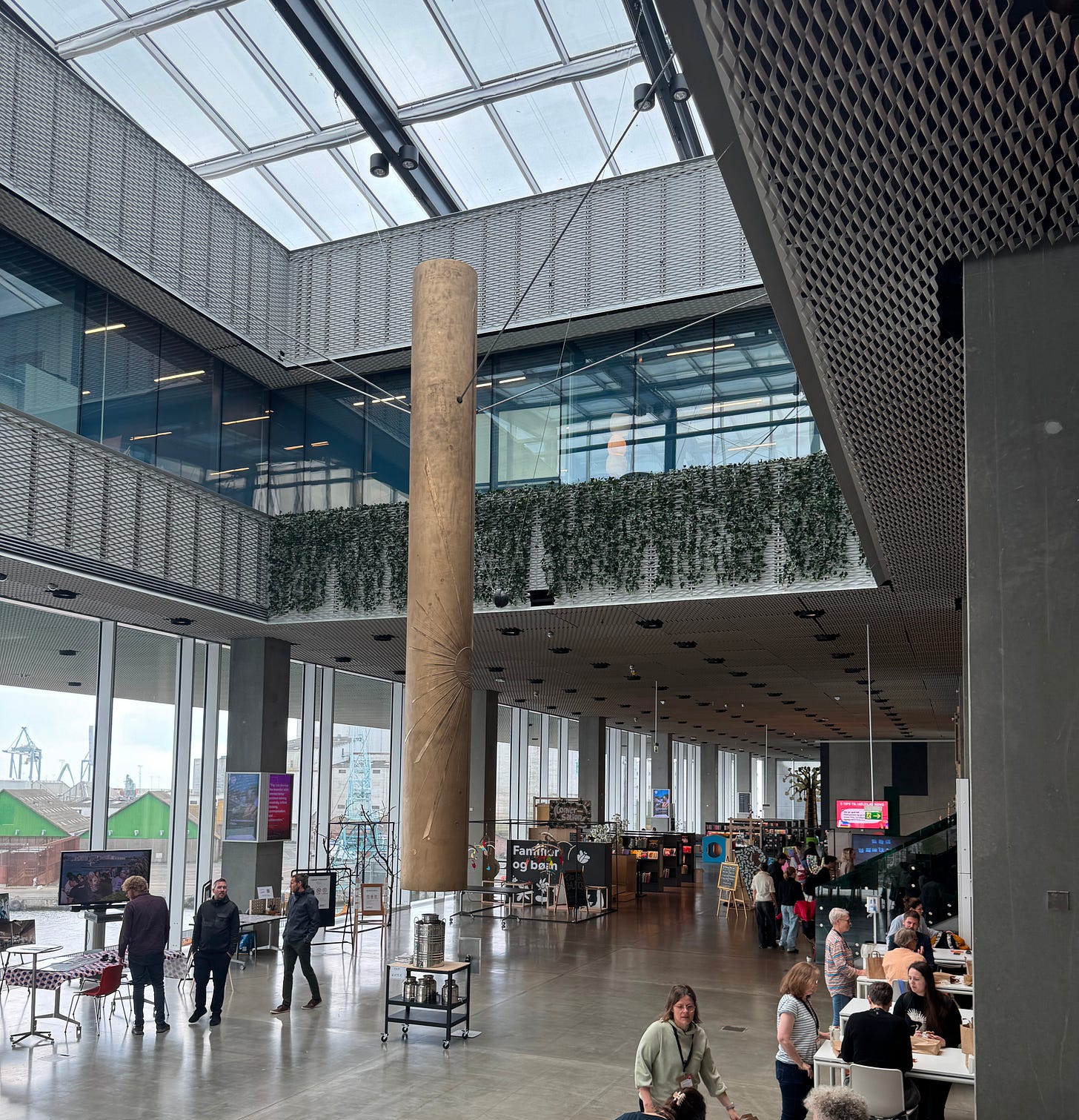
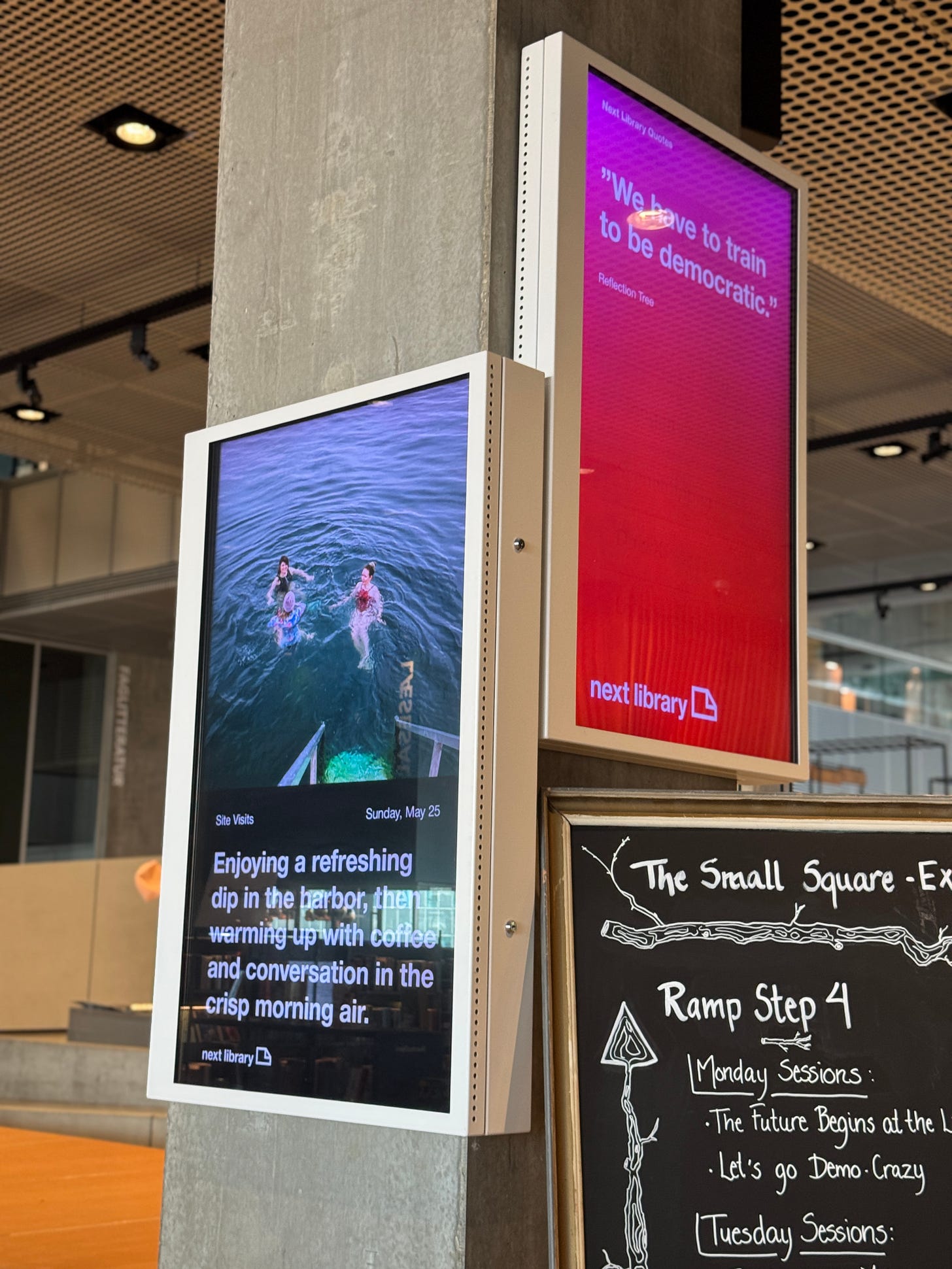
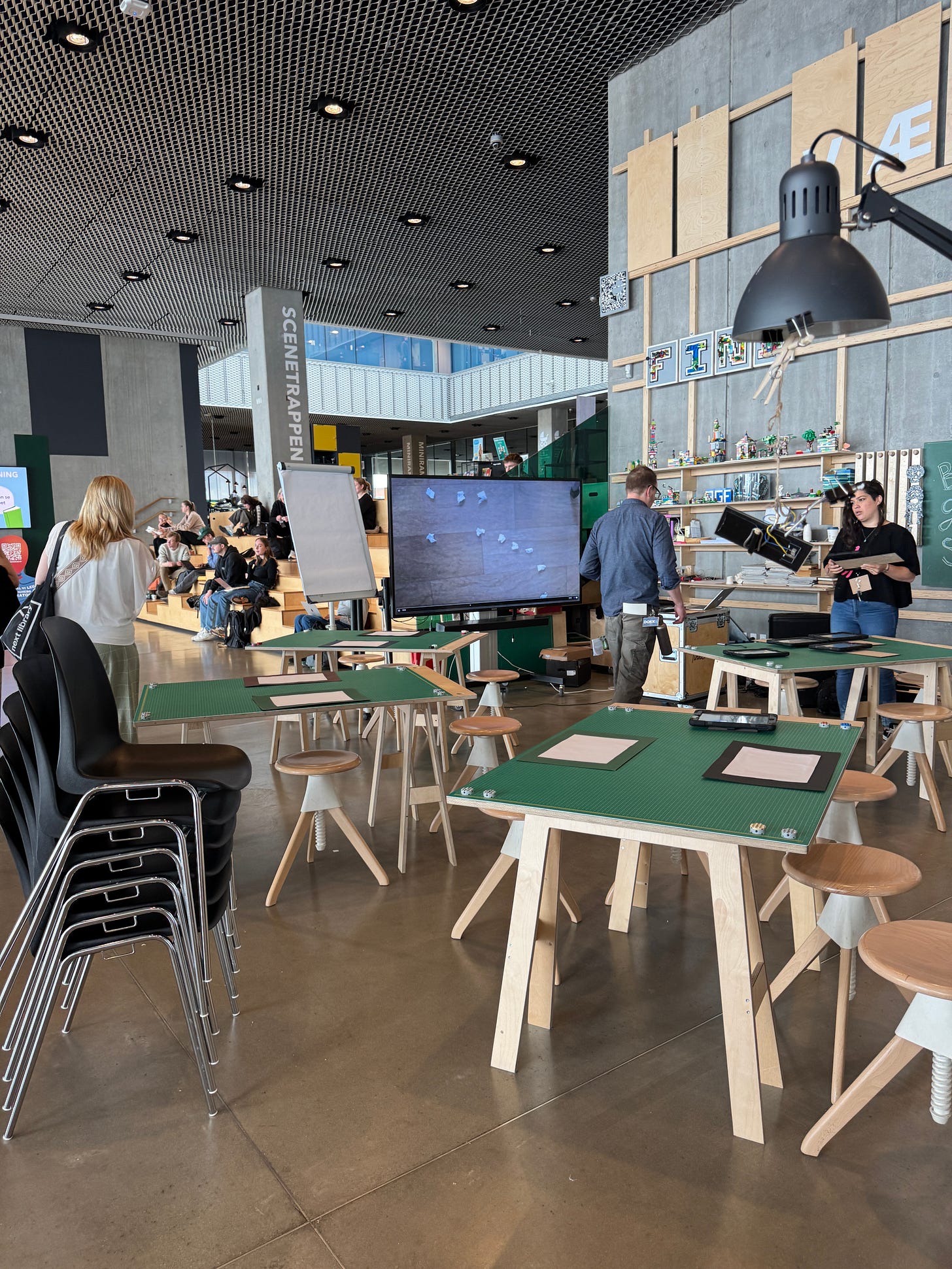
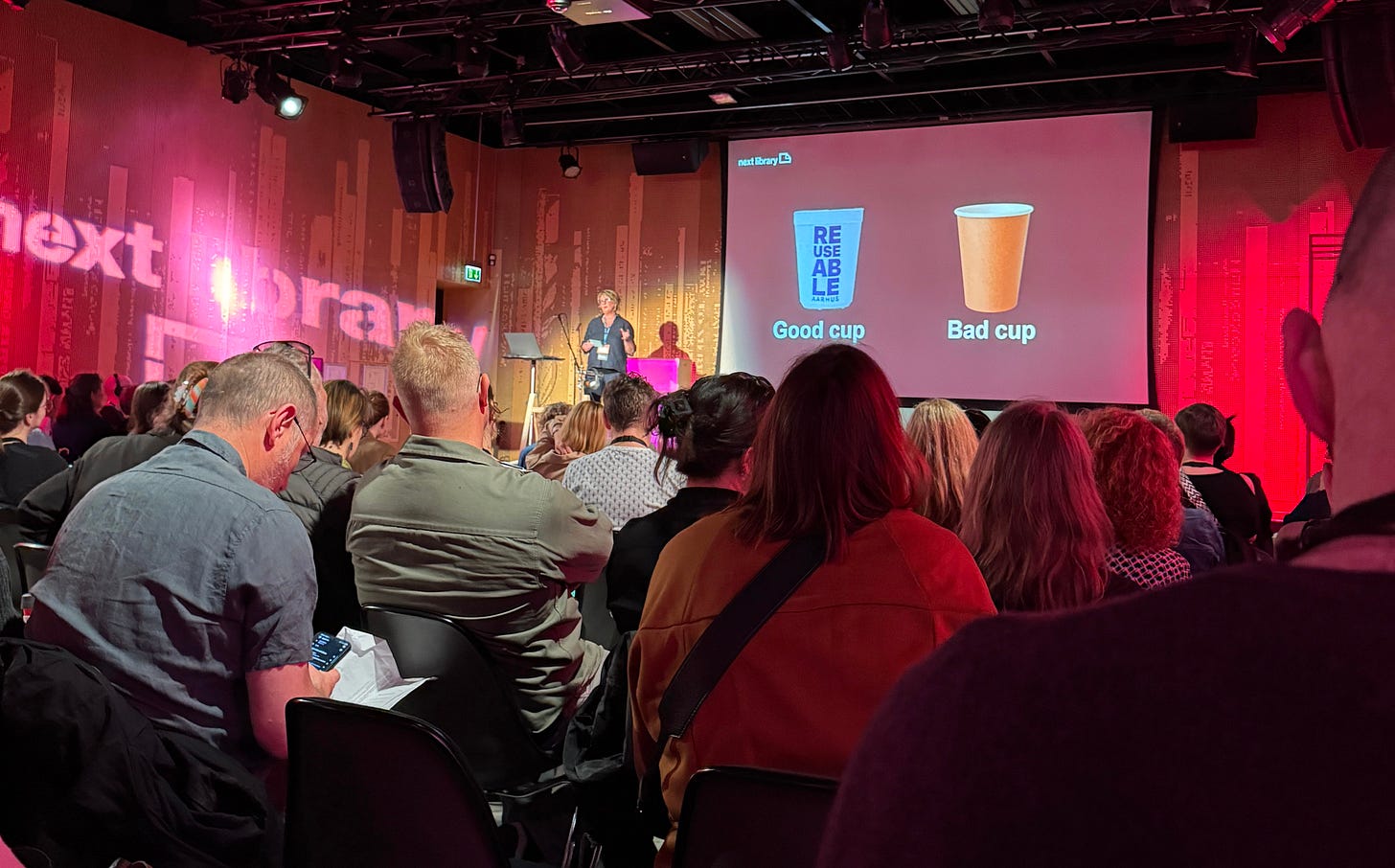
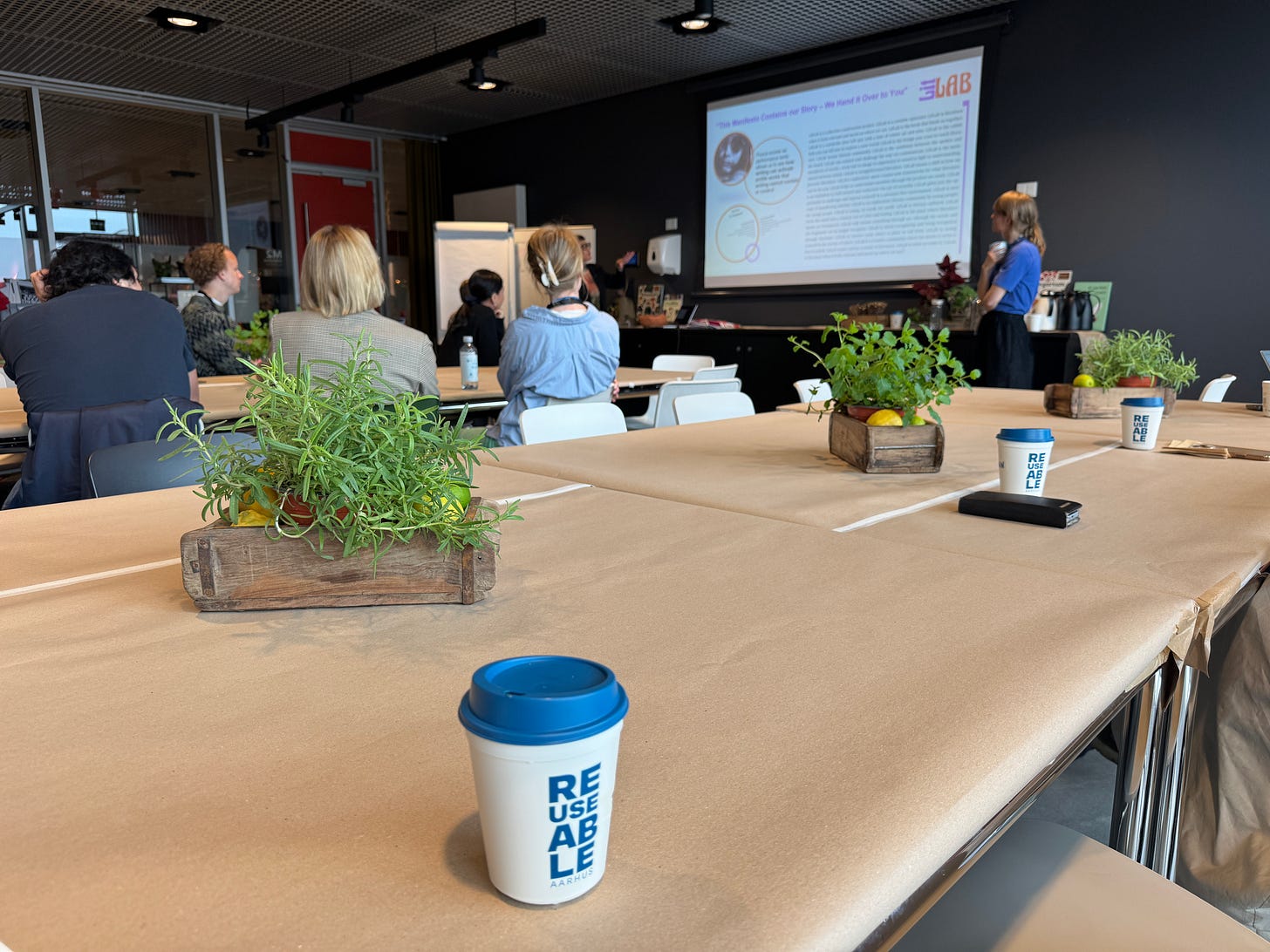
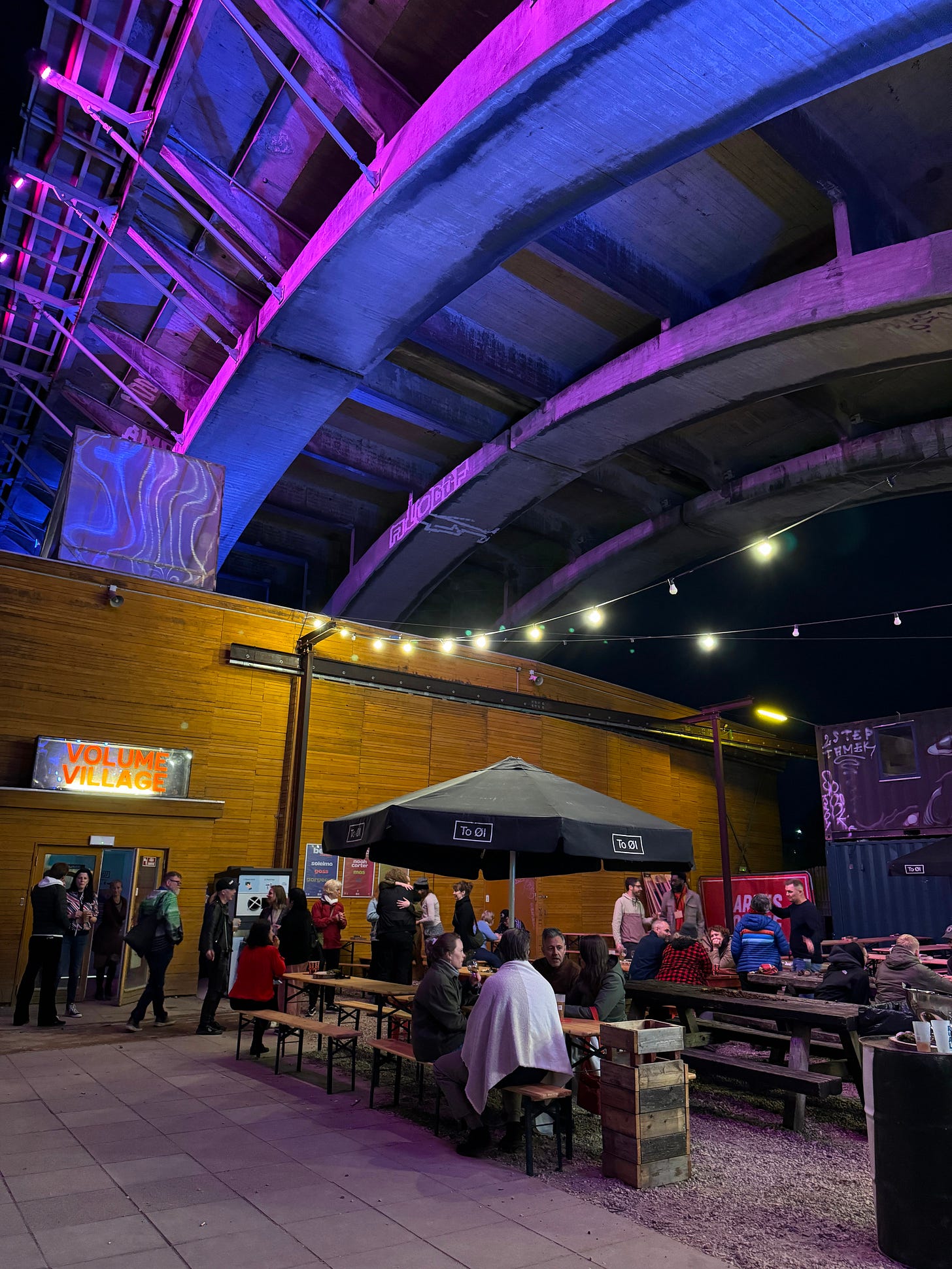
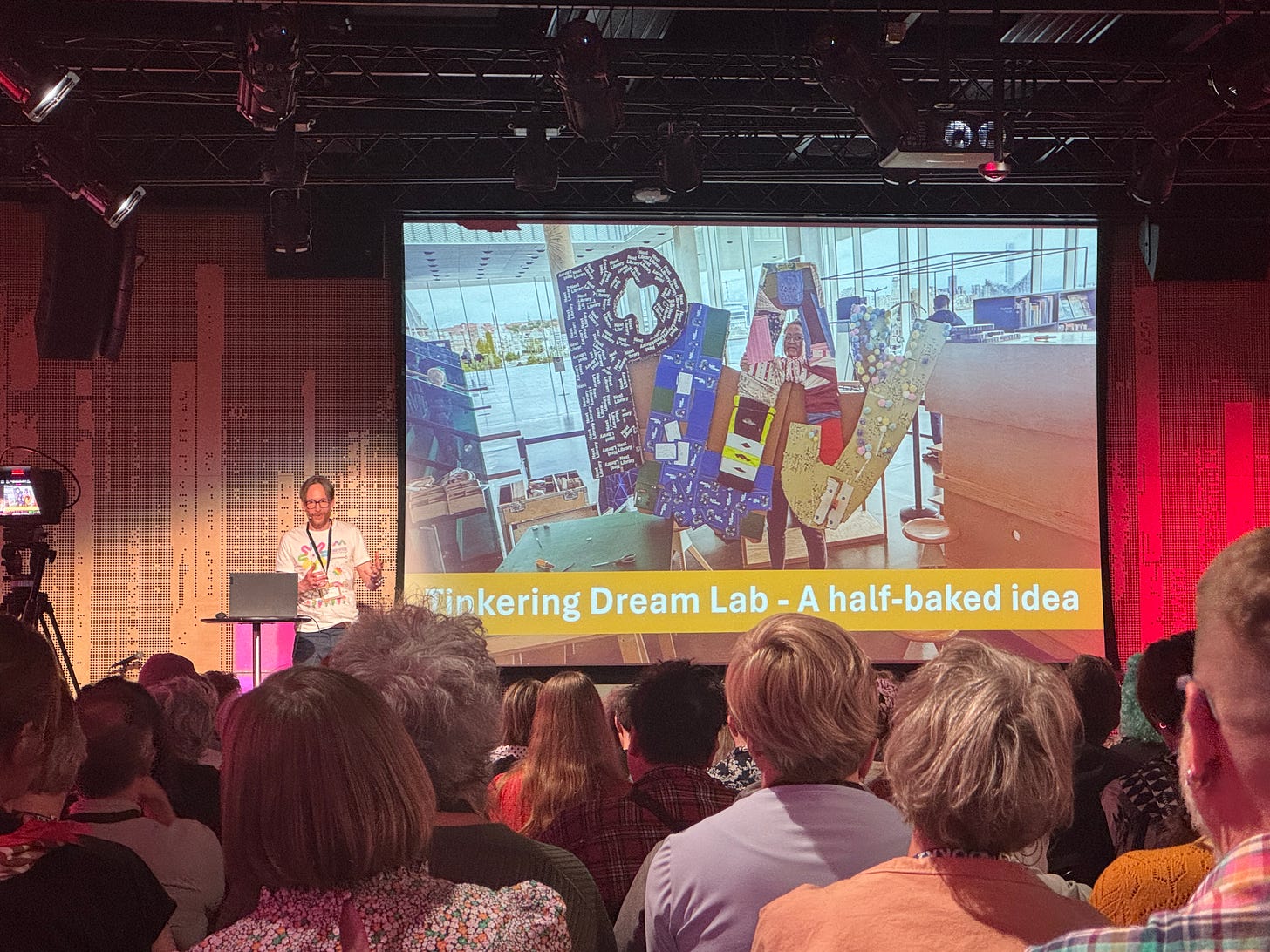
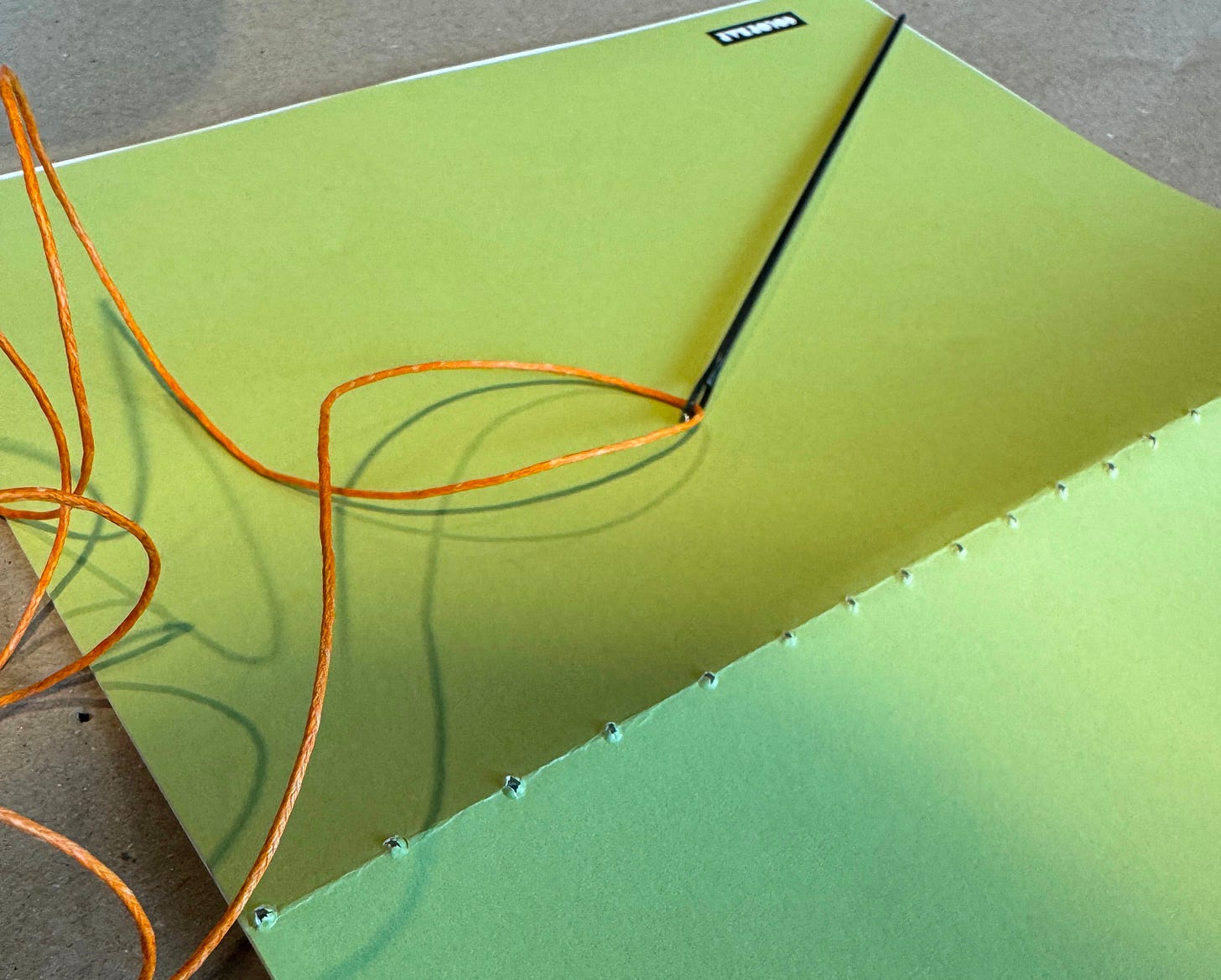
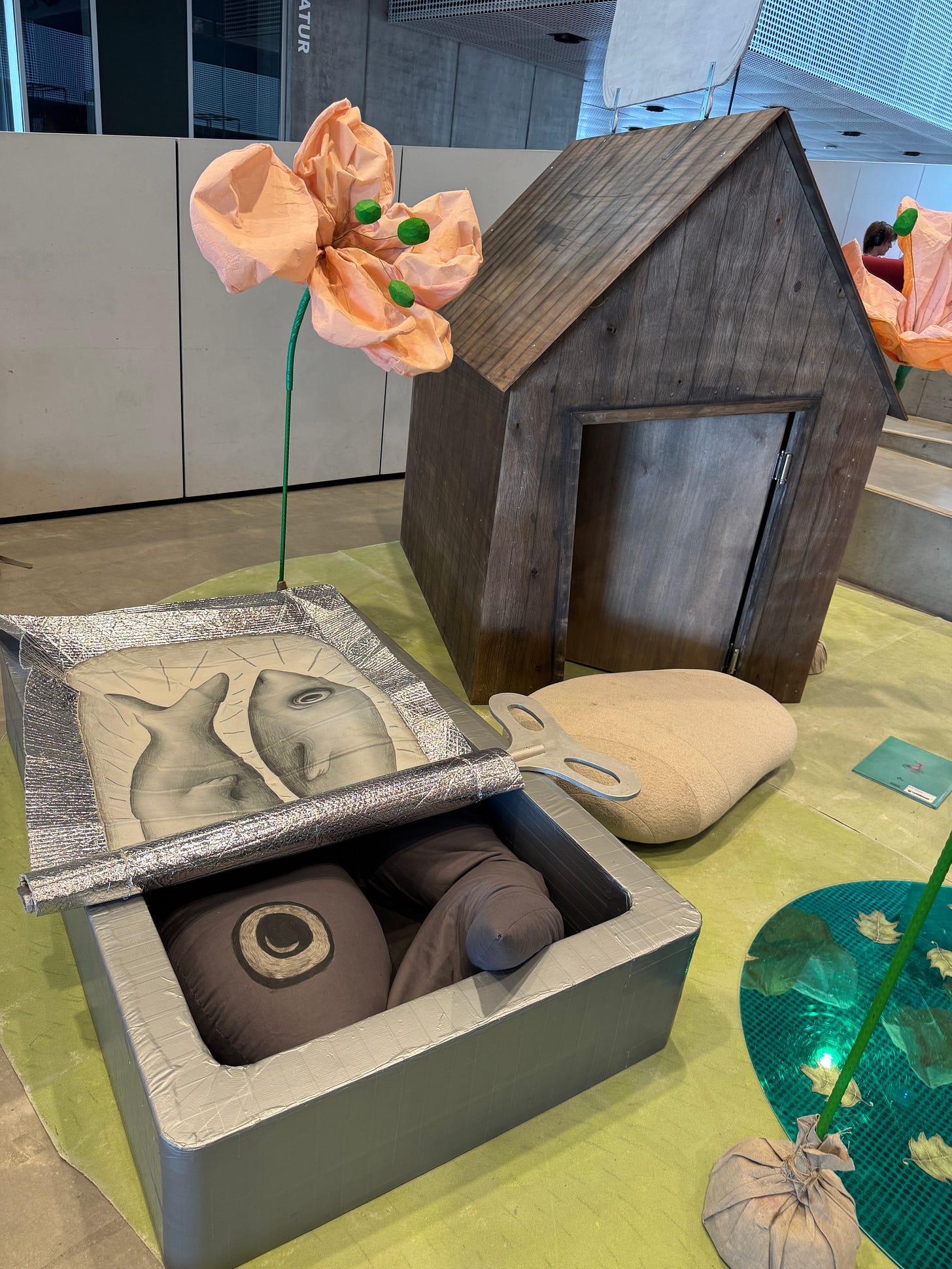
Thank you for sharing such a beautifully written and insightful reflection. I couldn’t attend this year, but I found myself nodding along many times as I read your 10 reasons.